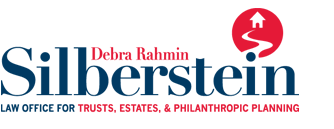During these first few weeks of the new year, we’re apt to think afresh about our lives, our health, our families, and our goals for the coming year. If you’re engaged in this kind of thinking, take some time to think about your estate plan by taking a look at our five estate planning resolutions for 2014:
-
1. Check your beneficiary designations
If you have retirement assets (401(k)s, 403(b)s, IRAs), life insurance, annuities, or any other asset that has a beneficiary designation, check with the applicable financial institution that your accounts name the correct beneficiaries. Think about whether anything has changed since you opened the account that might make you want to modify who will receive these assets. Further, for important income tax reasons, note that retirement assets should not generally name your Trust as a beneficiary. If a Trust is named as beneficiary of your retirement asset, call us or your tax advisor to confirm that this designation should not be changed, and to discuss the income tax implications.
-
2. Make or update your Health Care Proxy; Have that conversation with your family
While you’re thinking about your health – perhaps you’re trying to drag yourself to the gym or trying healthy eating – think about what your choices might be for medical treatments and procedures while you’re incapacitated. A Health Care Proxy appoints someone to make those decisions on your behalf if you cannot communicate your wishes to your physician. If you don’t have one in place, consider who you’d name, and call us to put one in place. If you already have one, talk with your named agent about your wishes regarding health care, and consider whether the person you named is still the person you would want to make those decisions for you.
-
3. Consider Whether your Estate Plan Addresses your Digital Assets
If you have an existing estate plan, you might want to think about your online accounts, from eBay and Amazon businesses to Facebook, Gmail and iTunes accounts. While the law remains unclear as to who owns these assets after your death, there are simple steps that can be taken to ensure your loved ones can access these accounts if something happens to you. Be sure to make lists of usernames and passwords, and keep them in a safe place. We can also assign digital assets to revocable trusts, and grant powers over digital assets to your power of attorney.
-
4. Update your estate plan to reflect the changing needs of your children and loved ones
Many people make estate plans when their children are young, when they don’t know what the future will bring. Whether it’s disability, addiction, marriage, or divorce, your estate plan might need to be updated to better serve the needs of your beneficiaries. For example, if your children receive government benefits, leaving him or her even a modest legacy, without further planning, will almost certainly affect his or her eligibility. So think about whether changes in circumstance might warrant an update.
-
5. Review the growth in your assets to determine whether you might benefit from state or federal estate tax planning
While the American Taxpayer Relief Act of 2013 largely settled the federal estate tax question for estates of less than $10.6 million, Massachusetts residents may still face a state estate tax if their estate is worth more than $1 million. It’s easier to get to that number than you might think. Life insurance proceeds may very well be included in your estate for estate tax purposes. For a rough calculation of your estate’s worth, add up all your assets – including real estate, retirement accounts, investment accounts, and cash – and add to it the death benefit value of any life insurance policies (term or whole life). If you’re anywhere near the million dollar mark, estate tax planning might make sense for you.







